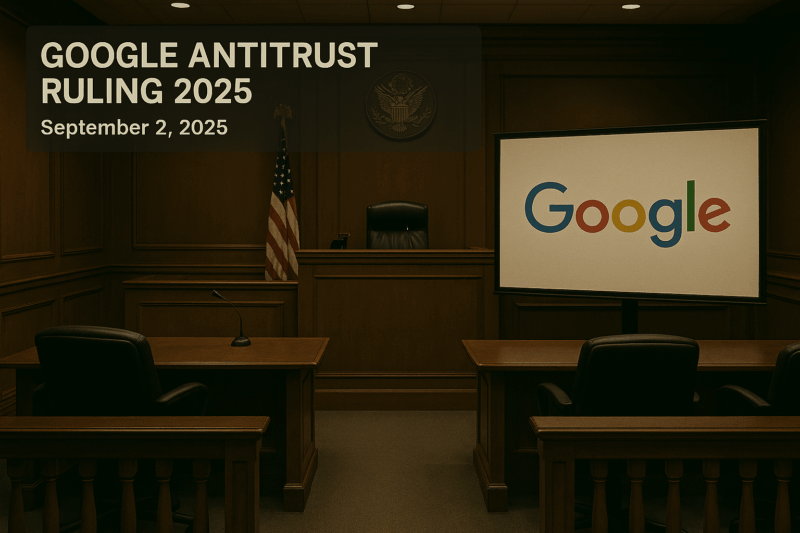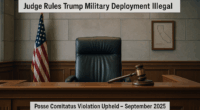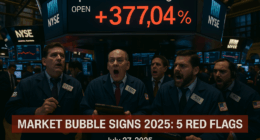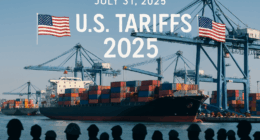On September 2, 2025, a U.S. federal judge ruled that Google must share search data with rivals but avoided harsher penalties like breaking up the company, marking a pivotal moment in the Google antitrust ruling 2025. The decision, following a year-long trial, found Google illegally monopolized internet search but rejected the U.S. Justice Department’s push to divest Chrome or ban default search deals with Apple. Alphabet’s shares surged 8%, reflecting relief in the tech sector. Focus keywords: Google antitrust ruling 2025, Google US monopoly case, Judge Amit Mehta ruling, Google search data sharing, Big Tech antitrust 2025.
Legal Outcome
Judge’s Decision
U.S. District Judge Amit Mehta, in the landmark Google US monopoly case, ordered Google to share select search data with competitors on “ordinary commercial terms,” per MSN. However, he rejected proposals to force the sale of Chrome or Android, which the Justice Department argued would curb Google’s dominance, per Bloomberg. Mehta also barred exclusive distribution contracts but allowed Google to continue paying partners like Apple, which earns $20 billion annually to make Google the default iPhone search engine, per The New York Times.
Google’s Response
Google expressed concerns about user privacy and data sharing, stating it is “reviewing the decision closely,” per its blog post. The company, which processes 8.5 billion daily searches, avoided the “most extreme” remedies, such as Chrome divestiture, which could have disrupted its $240 billion ad revenue stream, per NPR. The Judge Amit Mehta ruling is seen as a balanced approach, with Mehta noting courts must act with “humility” in crafting remedies, per The New York Times.
Tech Implications
Search Market Impact
The Google search data sharing mandate aims to level the playing field for competitors like Bing and DuckDuckGo, which hold 3% market share each compared to Google’s 90%, per Ave Maria School of Law. However, limited data-sharing requirements may not significantly boost rivals, as OpenAI’s Nick Turley testified that Google’s 20-year data advantage remains a barrier, per Reuters. The ruling also restricts Google’s payments for default search placement, potentially opening opportunities for smaller engines.
AI and Innovation
The Big Tech antitrust 2025 case raised concerns about Google’s AI dominance, with the Justice Department arguing that its search monopoly fuels tools like Gemini. Judge Mehta, however, excluded AI from the ruling’s scope, noting it didn’t fit the case’s focus on search, per Reuters. This decision allows Google to continue integrating AI into its search engine, maintaining its edge as an “answer engine,” per AP News.
Global News Context
Broader Tech Regulation
The Google antitrust ruling 2025 follows a Virginia court’s April 2025 finding that Google monopolized digital advertising, per Justice Department records. It’s the most significant U.S. antitrust case since Microsoft’s 1998 trial, signaling heightened scrutiny of Big Tech, with Meta and Apple facing similar lawsuits, per NPR. Posts on X reflect mixed sentiment, with some praising the ruling’s restraint and others arguing it fails to curb Google’s power, per.
Future Outlook
Ongoing Legal Battles
Google plans to appeal the Judge Amit Mehta ruling, a process that could take years, per Cornell law professor George Hay. The Justice Department may push for stricter remedies by March 2026, including limits on Google’s AI web scraping, per Ave Maria School of Law. The Big Tech antitrust 2025 landscape remains volatile, with potential impacts on how U.S. users search the web, per Fast Company.
FAQ
What did the Google antitrust ruling 2025 decide?
The Google antitrust ruling 2025 ordered Google to share search data with rivals and barred exclusive contracts but rejected Chrome divestiture or banning default search deals.
How will the ruling affect Google users?
The Google search data sharing may improve rival search engines, but Google’s dominance is likely to persist, with minimal immediate changes for users.
Conclusion
The Google antitrust ruling 2025 marks a milestone in the Google US monopoly case, with Judge Amit Mehta ordering Google search data sharing but sparing the tech giant from breakup. The Judge Amit Mehta ruling balances competition with innovation, allowing Google to maintain its 90% search market share while facing Big Tech antitrust 2025 scrutiny. As appeals loom, U.S. tech news readers should watch for shifts in the digital landscape. Focus keywords: Google antitrust ruling 2025, Google US monopoly case, Judge Amit Mehta ruling, Google search data sharing, Big Tech antitrust 2025.






